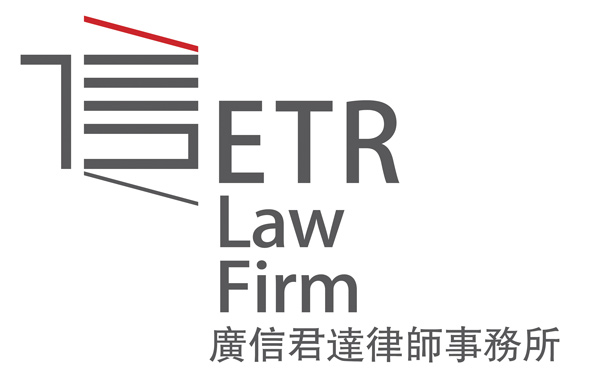The rapid spread of online information, coupled with the relative anonymity of its disseminators, has created an environment where inappropriate comments and information can thrive and quickly escalate, often leading to large-scale online violence incidents. This article delves into the legal liabilities associated with such online violence, drawing insights from notable incidents in 2022 and governmental action to address the issue. It also explores how individuals can safeguard their legitimate rights and respect others online.
Hot events

Partner
ETR Law Firm
In early 2022, an underage individual posted a video on a video-sharing platform seeking to reunite with his biological parents. With the assistance of government agencies, the young person successfully located them. However, his heartfelt desire to “have a home with his parents” was misconstrued as a demand for his birth parents to purchase a house for him and widely circulated by netizens.
Despite the teenager’s repeated efforts to clarify his intention through live-streaming and other means, the criticism and online violence from netizens continued unabated. As the situation escalated, the young person tragically took his own life.
Similarly in early 2022, amid pandemic-related restrictions, a woman used a mobile app to hire a delivery person to bring meals to her father. In a gesture of gratitude, she recharged the delivery person’s mobile phone with credit. However, despite this heartwarming story, netizens criticised her for being too stingy with the amount she recharged, which eventually pushed her to breaking point, making the tragic decision to end her life.
Government documents
In response to rising incidents of online violence, various government departments have issued multiple documents in recent years to regulate the publication and dissemination of online information and foster a healthy internet ecosystem.
In June 2022, the Cyberspace Administration of China (CAC) released the Provisions on the Management of Internet User Account Information, which notably delineates the regulatory obligations of internet information service providers regarding user account admission and usage.
These regulations stipulate the necessity of establishing a robust verification process for account information; authenticating real identity information during account registration; and displaying the account’s internet protocol (IP) attribution. For public accounts, additional requirements include disclosing the account’s operating entity for public scrutiny.

Paralegal
ETR Law Firm
In early 2022, the Office of the Central Cyberspace Affairs Commission (OCCAC) also initiated a special campaign called Qinglang2022 Spring Festival network environment improvement.
This initiative focused on curbing online violence by targeting platforms such as online groups, website forums, and comment and private messaging sections, encouraging online platforms to enhance their mechanisms for preventing and controlling online violence.
In addition to the Qinglang campaign, the OCCAC subsequently issued a Notice on Effectively Strengthening the Governance of Online Violence to further intensify efforts in tackling violent online behaviour such as insults, slander, spreading false information, infringement of others’ legal rights, and disruption of normal online order.
Infringement and liability
In recent hot events, certain online activities such as insulting or defaming others not only have the potential to infringe on the civil rights of parties involved, but may also lead to criminal liability.
The Civil Code grants all legal entities personality rights, explicitly prohibiting any organisation or individual from violating others’ right to reputation through actions like insults or defamation.
In Beijing Lanshida Optoelectronics Technology and Huang Xiaolan v Zhao Min, the court determined there was a causal relationship between derogatory statements made by Zhao in a WeChat group, which were known to other group members, and damage to Huang’s reputation. As a result, Zhao was held legally responsible for the infringement.
Additionally, fabricating false information to defame someone could potentially lead to charges of insult and defamation. In a case highlighted by the Supreme People’s Procuratorate, the defendants, Lang and He, fabricated WeChat chat records falsely implicating the victim, Gu, in an inappropriate relationship with a delivery person.
They disseminated these fabricated chat records in a WeChat group, which garnered widespread media attention, seriously impacting the victim’s daily life, and disrupting internet public order. Consequently, they were sentenced to one year in prison with two years on probation.
Furthermore, the Interpretation Concerning Some Questions of Applicable Law When Handling Uses of Information Networks to Commit Defamation and Other Such Criminal Cases explicitly states that actions involving online insults and intimidation can result in charges of the crime of provocation and disturbance, especially if the circumstances are severe and disrupt social order.
Addressing online violence
In light of the above-mentioned high-profile cases, it’s not always sufficient for victims to publicly share accurate information to halt disseminating inappropriate content online. They should also take timely legal action to protect their rights.
When online violence occurs – including infringements on personality rights such as image, reputation and privacy – victims have the option to file civil lawsuits.
The Civil Code grants victims the right to demand that the wrongdoer assumes civil liability, which may include stopping the infringement, removing its impact, restoring one’s reputation, and demanding an apology.
If online violence reaches a level that significantly affects the victim’s daily life or work, or violates other legal provisions, the victim can also report the incident to law enforcement agencies, or initiate criminal proceedings to hold the wrongdoer criminally responsible. When facing online violence, victims can also assert their rights against internet service providers. According to the Civil Code, if an internet user commits an infringement using internet services, the rights holder has the authority to notify the internet service provider to take necessary measures such as deletion, blocking or disconnecting links.
On receiving such a notice, the internet service provider should promptly relay it to the relevant internet users and take necessary actions to obtain preliminary evidence of the infringement. Failure to take timely action may result in the internet service provider sharing joint liability for any expanded result caused.
Zhu Tao is a partner and Zheng Ziliang is a paralegal at ETR Law Firm
10 & 29/F, Chow Tai Fook Finance Centre
No. 6 Zhujiang Dong Road
Guangzhou 510623, China
Tel: +86 20 3718 1333
Fax: +86 20 3718 1388
Email:






















